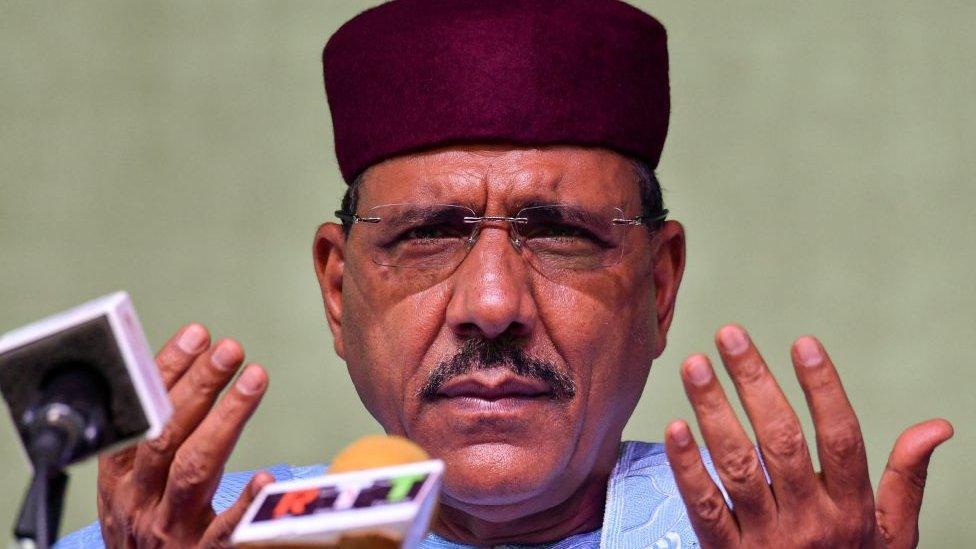Niger deposed President Mohamed Bazoum's son freed by coup leaders
- Published

Ousted President Mohamed Bazoum and his wife are still being held by the military junta
The son of Niger's deposed President Mohamed Bazoum has been released by a military tribunal after spending more than five months in detention.
Salem Bazoum left for Togo after mediation efforts by regional leaders led to him being freed.
He was detained along with his parents at the presidential palace after the military staged a coup last July.
His parents remain in detention, with the junta so far refusing to bow to diplomatic pressure to release them.
In a statement, the military tribunal said that the release of Mr Bazoum Jnr was provisional, and it would be "up to him to respond to justice as soon as he is required to do so".
He had been charged with conspiracy to undermine the authority of the state following the coup.
In October, the junta alleged that the ousted president and his family, his two cooks and two security officials made a failed attempt to escape.
Togo's Foreign Minister Robert Dussey came to Niger to escort Mr Bazoum Jnr out of the country, the tribunal's statement said.
Togo's government confirmed his release, but did not give details of his whereabouts.
Sierra Leone had also been involved in mediation efforts to secure the release of the ousted president's son, it added in a statement.
Last month, the court of the West African regional bloc Ecowas ruled that the Bazoum family's detention was arbitrary. It ordered their release, and the reinstatement of Mr Bazoum as president.
The military junta has ignored the ruling, and has said that there would be a transition of up to three years to civilian rule.
Mr Bazoum was overthrown by the head of the presidential bodyguard, Gen Abdourahamane Tiani, in a coup that was denounced by Ecowas and Western nations, including former colonial power France.
The last French troops withdrew from Niger last month on the orders of the junta.
Ecowas said it would maintain sanctions on Niger until it saw progress on a return to civilian rule.
The sanctions have contributed to a sharp rise in food prices and a shortage of some basic items in Niger.
You may also be interested in:
Related topics
- Published21 December 2023